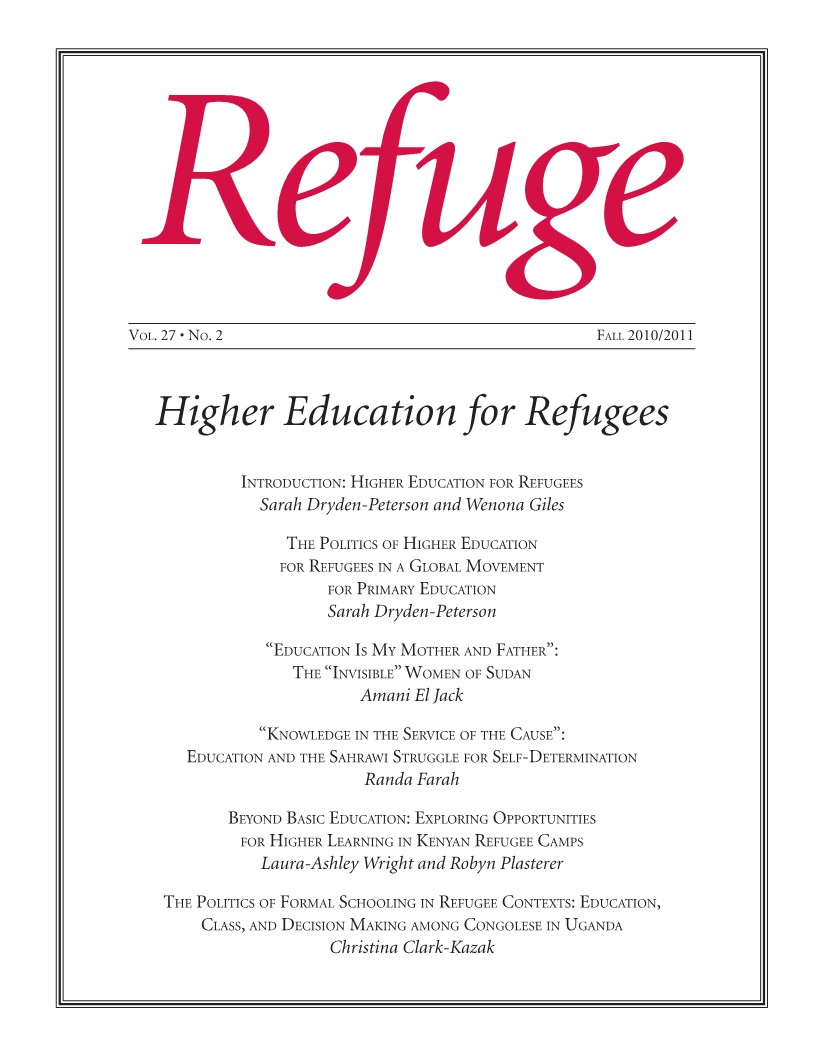Structural Factors Associated with Higher Education Access for First-Generation Refugees in Canada: An Agenda for Research
DOI:
https://doi.org/10.25071/1920-7336.34724Keywords:
Canada, refugees, higher education, tertiary education, access to education, segmented assimilation theory, cultural ecological theoryAbstract
Refugees are the least educated migrants upon arrival to Canada. Yet, they invest in Canadian higher education at lower rates than other newcomers. Why might this be? This paper enters this emergent conversation through a review of the Canadian-based empirical literature on the structural factors associated with refugees’ tertiary education access. Research indicates that as part of the low-income population, refugees are likely to misperceive the cost and benefits of higher education and be deterred by high tuition costs. Academic preparedness and tracking in high schools also pose additional constraints. The gap in the literature exposes a need for inquiry into the ways in which pre-arrival experiences influence refugees’ participation in Canada’s post-secondary institutions. The paper concludes by underscoring the need for qualitative research that discerns the lived experiences of refugees outside of the aggregate immigrant grouping typical in education research.
Metrics
Downloads
Published
How to Cite
Issue
Section
License
Copyright (c) 2012 Martha K. Ferede

This work is licensed under a Creative Commons Attribution-NonCommercial 4.0 International License.
Refuge authors retain the copyright over their work, and license it to the general public under the Creative Commons Attribution-Non Commercial License International (CC BY-NC 4.0). This license allows for non-commercial use, reproduction and adaption of the material in any medium or format, with proper attribution. For general information on Creative Commons licences, visit the Creative Commons site. For the CC BY-NC 4.0 license, review the human readable summary.







